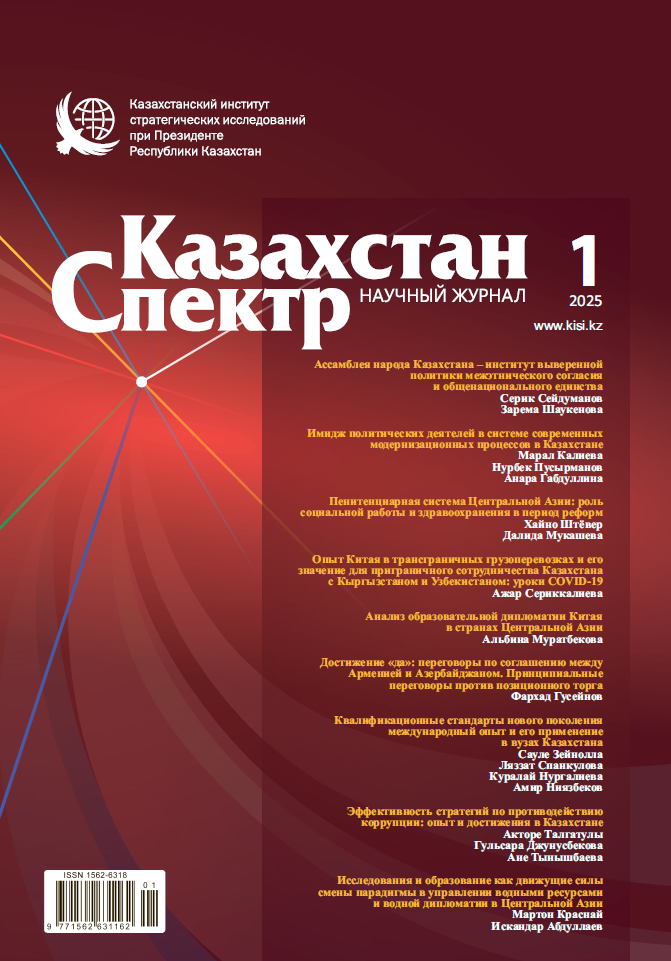Abstract
The Kazakh model of strengthening national unity, interethnic and interfaith harmony is deservedly considered one of the most successful and effective models in the world practice of ethnic-political management. The Assembly of the People of Kazakhstan (APK), whose 30th anniversary will be widely celebrated in 2025, plays a key role in shaping the national policy of the Kazakh state.
The article analyzes the institutional design of the APK as a unique body of complex socio-state regulation of interethnic relations. There are 4 key structural and functional levels at which the Assembly is working to strengthen social harmony and unity of the multiethnic and multicultural Kazakh society.: APK as an institutional form of the system of public self-government in the field of interethnic relations; the Assembly of the People of Kazakhstan as an institutional platform for intercultural dialogue and interethnic communications; the Assembly of the People of Kazakhstan as a full-fledged subject of state national policy through the institutions of the executive and legislative authorities of the Republic of Kazakhstan; APK as a dialogue platform and a form of institutionalization of direct and feedback links between civil society and the political system of the state.

This work is licensed under a Creative Commons Attribution 4.0 International License.
Copyright (c) 2025 Kazakhstan-Spectrum


